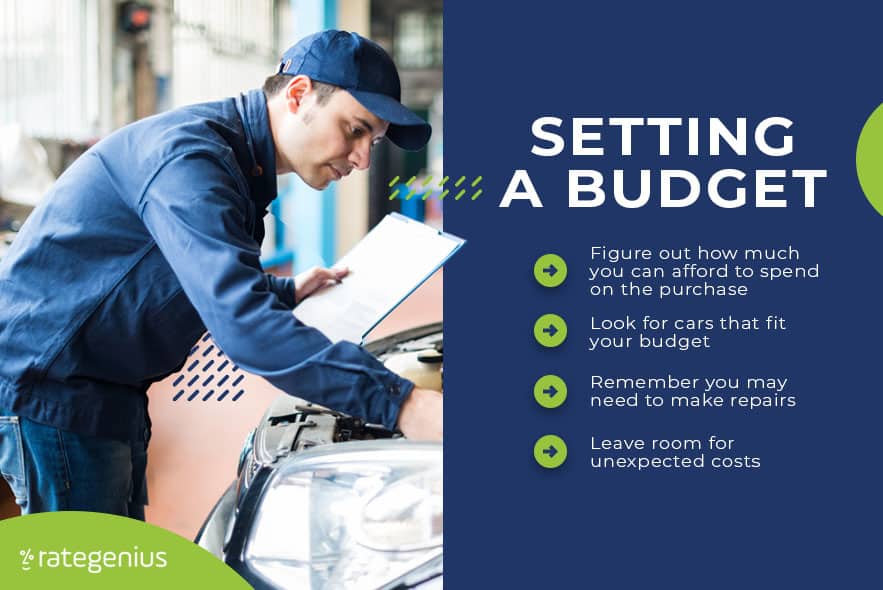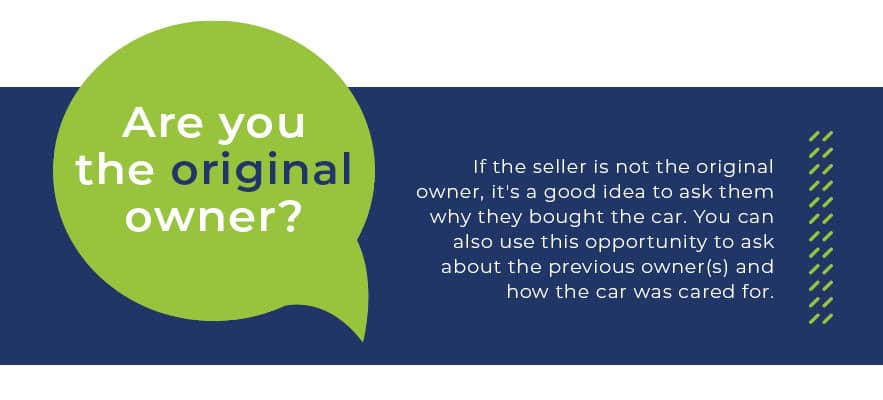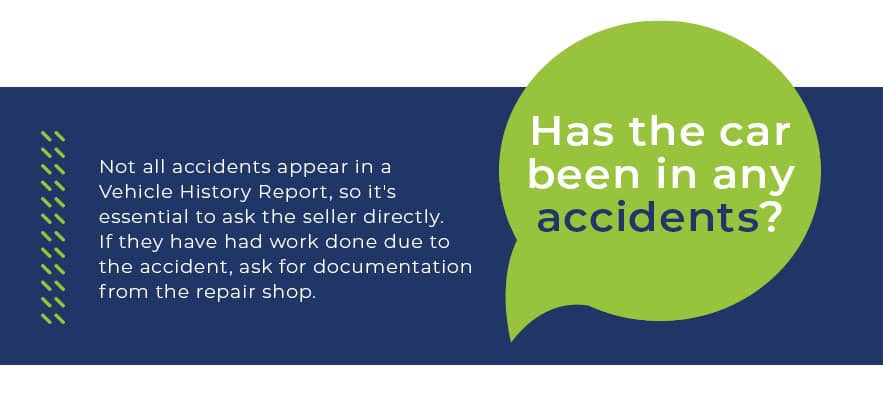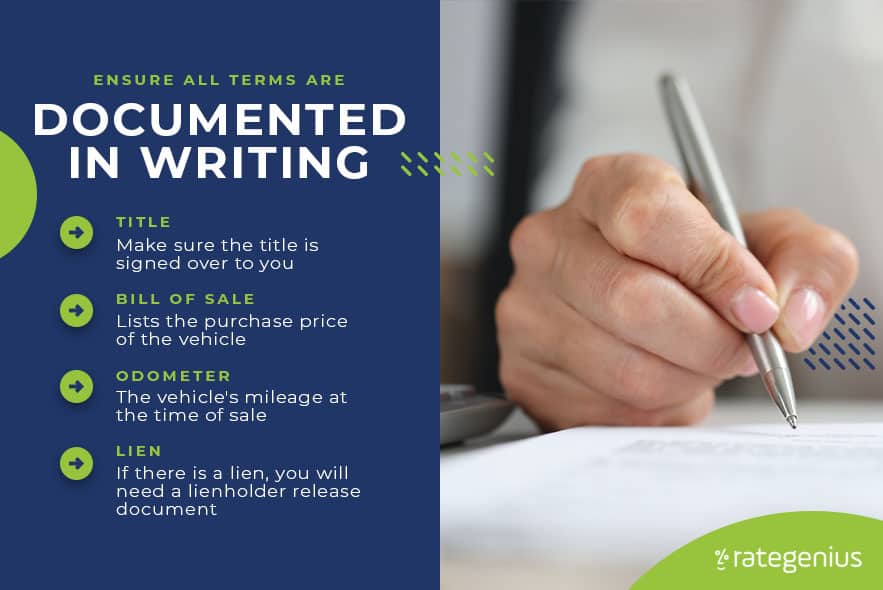If you’re in the market for a used car, you may consider purchasing from a private seller instead of a dealership. This is a great way to find a vehicle that meets your needs and fits your budget. However, there are some important considerations to keep in mind when pursuing a car sale from an individual.
First off, there are some advantages to this route. You may be able to find a cheaper car, and the process is often more straightforward and more relaxed than going through a dealer. However, there are also some disadvantages to be aware of. For one thing, a private party seller is not required to provide a warranty or guarantee, so if something goes wrong with the vehicle after you purchase it, you’ll be on your own. Additionally, it can be harder to negotiate a private sale, and you may not have the same level of protection if the vehicle turns out to have been stolen, scam, or otherwise misrepresented.
Overall, making a car purchase from a private seller can be a good option if you’re willing to do your research and are comfortable with a little extra risk. Here’s what you need to know about buying a new car (or a new-to-you car) from an individual.
Table of Contents:

Set a Budget
When buying a car from a private seller, one of the most important things to do is to set a budget. This helps ensure you do not overspend on the vehicle and end up in financial trouble. There are a few different ways to go about setting a budget.
First, you need to figure out how much you can afford to spend on the purchase. This includes the cost of the car itself, as well as any taxes, fees, and insurance. Once you know how much you can afford to spend, you can start looking for cars that fit your budget.
It is also important to remember that you may need to make repairs or modifications to the car once you have purchased it. As such, you should leave room for these unexpected costs in your budget. By taking the time to set a budget before making a purchase, you can help to ensure that you buy a car that you can afford.
Decide Where the Money Will Come From
Once you have a budget in mind, you need to decide where the money for the purchase will come from. Some people may use cash or savings, while others may choose to finance their purchase with a personal loan or auto loan. It is wise to consider all your options and make sure that financing is affordable.
When financing a car from a private seller, that person won’t offer you any in-house financing as a salesperson at a dealership might. As such, if you don’t have the cash upfront to make the purchase, it is your responsibility to secure the necessary financing.
Many banks and credit unions are willing to provide you with a car loan for purchasing from an individual seller or offer other financial products — such as a private loan or line of credit — that can help you get the money you need. You need to do your due diligence here and understand how the interest rate and other aspects of the loan may impact your finances.
Do Your Research
Before you even start shopping for a used vehicle it is important to do your research. Start by exploring what kind of car would best fit your needs. Consider things like size, features and fuel efficiency. These are all essential factors when choosing a vehicle.

Once you know the type of car you’re looking for, it is time to start researching potential vehicles. First, look at online listings and classifieds (like Craigslist, for example) to see what’s available in your area. It is also wise to compare prices for similar cars across various sources so that you can get a better understanding of the market rate. Using resources like Kelley Blue Book or the National Automobile Dealers Association website can also help you research used car prices.
Additionally, make sure to research the make, model and year of each car you’re considering to be sure of its safety records, reliability, recalls and common problems (if any). It’s also worth comparing the seller’s asking price to the current market value (or trade-in value) of similar cars in a similar condition. This may help you get a lower price when it comes time to negotiate.
Depending on where you live, you may find that there aren’t many local options for used cars. If that’s the case, you may consider purchasing from a private seller in another town. Shopping out of state is also an option, but it’s more complicated. Make sure to research the Department of Motor Vehicles laws and regulations when buying a car from out of state for your specific location.
Check the Car in Person and Get a Vehicle History Report
When you finally find a car that fits your budget and needs, it is time to arrange an in-person inspection. Check the condition of the engine, brakes, tires and other important components. If you’re not confident with this, bring along someone who is. Chances are you have a friend or family member who knows about cars and is willing to help.
This is also when you should have a Vehicle History Report (VHR) completed for your chosen car. This report provides you with information about the car’s past accidents or damage and any recalls or warranty coverage that may apply. To complete a VHR, you need the vehicle identification number (VIN). The National Motor Vehicle Title Information System (NMVTIS) lists approved providers of VHRs, and you can use these providers to get the report.
If you’re unsure about where the VIN is on a car, you can find it on the driver’s side dashboard near the windshield or the door frame, as well as in other places. Ensuring these haven’t been tampered with is important for verifying the car’s history.
You can also ask the seller to show you service records (or Carfax report) to get an indication of how well the car has been maintained.
Ask the Seller Questions
It’s also important to ask the seller questions about the car. These should include the following:
- Why are you selling the car? – It’s always a good idea to get a read on why someone is selling a car. There are various reasons, including relocation, upgrading to a newer model or just needing something bigger. People selling for financial reasons may not be willing to talk about it, so don’t expect a full explanation if that’s the case.

-
- Are you the original owner? – If the seller is not the original owner, it’s a good idea to ask them why they bought the car. For example, was it for convenience, or were there any other reasons? You can also use this opportunity to ask about the previous owner(s) and how the car was cared for.
- Are you the title holder, and are there any liens on the car? – This is an important question because it tells you who has rights to the vehicle. If there are any liens, you must make sure they are cleared before you purchase the car. In title-holding states, the title is held by the lender until the loan is paid in full. This situation may complicate the purchase process, so having all the information upfront is essential. Understanding the difference between title vs. registration here is important as well. Don’t confuse the two. The car title makes proof of ownership clear, while the registration states that it’s been approved by the DMV to be on the road.
- How long have you owned the car? – This information will probably come up with the previous questions, but it’s important enough that it deserves its spot. Knowing how long the current owner has had the car can help you determine whether or not they have done regular maintenance and if any significant problems arose during their vehicle ownership.
- What type of maintenance has the car had? – Again, this might come up with the previous questions, but it’s important to ask. The seller should be willing to provide proof that they’ve done regular maintenance, such as oil changes and tire rotations. They should also be able to provide records of any major wear-and-tear repairs or upgrades. If they can’t or aren’t willing to provide these types of things, you might consider that a red flag.

-
- Has the car been in any accidents? – Not all accidents appear in a Vehicle History Report, so it’s essential to ask the seller directly. Also, if they have had any work done due to the accident, ask for documentation from the repair shop.
- How many miles are on the car? – The number of miles a car has is an important factor in determining its value. If you’re comfortable with higher mileage cars, this may not be a concern, but it’s worth asking if you’re looking for something newer or in better condition. To give you an idea of what’s considered an average odometer reading, the U.S. Department of Transportation reports that 13,476 miles are driven per year on average.
- Is there anything else I should know about the car? – Though this is a pretty open-ended question, it allows you to chat about any of the quirks or issues the car may have. The seller might not be willing to divulge all the information, but it’s better to ask and get a read on what they are telling you. You can lead into the conversation by asking things like, “Does the clutch feel a little sticky?” or “How’s the air conditioning?”
Take the Car for a Test Drive
Regardless of what the seller tells you, taking the car for a test drive in a public place is essential before making any firm decision. This lets you get a feel for how the car performs and reacts in different driving conditions. Also, pay attention to any strange noises or smells that may come up during this time, as they could indicate underlying problems with the vehicle.

It would be best if you used this opportunity to test things like the brakes, steering and acceleration. Also, check the car’s air conditioning, heating and electronics to ensure everything is working correctly. Finally, if the car has a lot of bells and whistles, you’ll want to play with as many of them as possible to ensure they are functioning correctly.
In most cases, the seller will be present during this time, so don’t be afraid to ask any questions that come up. In addition, they should be willing to answer your queries and provide additional information if needed.
Have the Car Inspected
When buying a car from a private seller, it’s important to get a professional opinion on the vehicle before finalizing the purchase. A trusted mechanic can assess the car’s condition and identify any potential problems. This is especially important for used cars, which may have hidden damage or mechanical issues. Even if the car appears in good condition, a professional inspection can give you peace of mind and help you avoid making a costly mistake. And they can verify that the VIN (in all its locations) and other identification information on the car match what’s listed in the paperwork.
In addition, a mechanic can provide valuable advice on negotiating the price of the car. Ultimately, an inspection by a qualified professional is one of the best ways to ensure you get a fair deal on a used car.

Negotiate the Sale and Get Everything in Writing
If you’ve done your homework as we recommended, you should be in an excellent position to negotiate the sale price. However, keep your emotions in check and focus on getting the best possible price for the car while still being fair to the seller.
Once you’ve reached an agreement, ensure all terms are documented in writing and handed over. This includes the following:
- Title – The title is one of the most critical documents in the car-buying process because it proves that the seller is the vehicle’s legal owner. Make sure during the title transfer process that the title is signed over to you before handing over any money. If the seller doesn’t have the title, there may be a reason for that. But buying a car without a title can be complicated, so it’s best to proceed cautiously.
- Bill of Sale – A bill of sale is another crucial document. This document should list the purchase price of the vehicle as well as any extra fees (e.g., sales tax, registration, etc.). It should also include proof of payment, whether you paid with a loan, cash, money order, cashier’s check, etc. Be sure to double-check that all of the numbers on the bill of sale match up with what was agreed upon verbally. If not, don’t be afraid to ask for clarification or a revision.
- Odometer Disclosure Statement – The Truth in Mileage Act (TIMA) requires sellers to provide written documentation of a vehicle’s mileage at the time of sale. This statement must be completed by the seller and signed by both parties.
- Lien Information/Release – If there is a lien on the vehicle — meaning that someone else has an interest in it — you will need written documentation from the lienholder releasing their interest in the vehicle. Without this document, you won’t be able to register the vehicle in your name.
After you have all of the necessary documents, it’s time to make the purchase. Review everything carefully before handing over any money and signing on the dotted line. Buying a car from a private seller doesn’t have to be scary or complicated — as long as you research and take precautions to ensure you are getting a good deal.
About The Author
Robert Janssen
Robert Janssen is the Vice President of Operations for Tresl, and has been working in the auto finance industry for 15 years. He recieved a B.A. in Economics from the University of Texas at Austin.
;)







